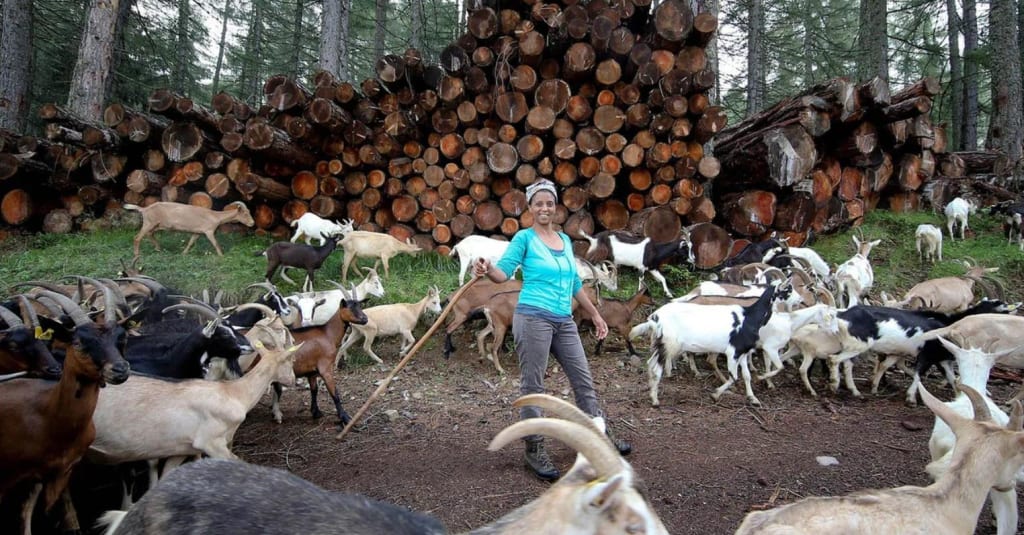
After this story was reported, Agitu Idea Gudeta was tragically killed. Her family has given us permission to publish this story in her memory.
Tucked away in north-east Italy’s Dolomite mountains, the 350-person town of Frassilongo is a collection of Alpine huts clinging to steep hillsides that climb up rugged snow-capped peaks.
I was immediately struck by the wild beauty of this place
The rolling Mòcheni Valley surrounding the tiny town, the medieval Mòcheno Germanic language spoken by the valley's 1,900 inhabitants and the hardy Mòcheni people who have been living here for the past nine centuries all share their unique name and identity with the Mòcheno goat that is native to these mountains. And today, residents of this remote corner of Europe still cling fiercely to a distinct blend of Italian and Germanic culture that rings through the valley.
Yet, the first time Agitu Idea Gudeta stepped foot into this Alpine setting after arriving from Ethiopia, she said it felt like home.
"I was immediately struck by the wild beauty of this place," she said. "It’s one of the few untamed valleys here in [the] Trentino [province]."
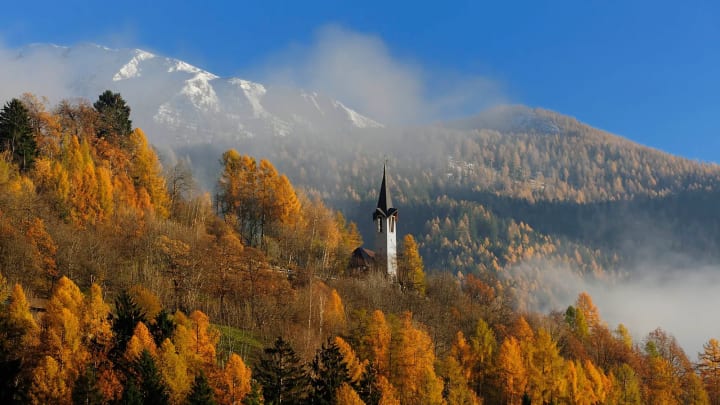
Gudeta was the proud owner of La Capra Felice (The Happy Goat), an award-winning dairy farm in Frassilongo, located 20km east of Trentino’s capital, Trento. For centuries, the Mòcheni people enjoyed a rural livelihood based on agriculture, mining and trade with the surrounding valleys. But following Italy’s post-World War Two industrialisation, many locals left their masos (Alpine farms) to look for jobs in cities. In the past 50 years, Frassilongo’s population has declined by nearly half and most of its agricultural land has been abandoned. In fact, it wasn’t until 2010 that the first new business opened in Frassilongo in 30 years: Gudeta’s "Happy Goat" farm.
Gudeta's farm is now one of the only places that appears on Google Maps when you search for Frassilongo, and people often visit the tiny town from across Trentino and nearby South Tyrol province to find Agitu’s famed products.
Much like the first Mòcheni settlers who moved to the valley from southern Germany in the 12th Century, Gudeta arrived here looking for land to start life anew. Raised by a family of nomadic shepherds in Addis Ababa, she was forced to flee her home country in 2010 when the government issued a warrant for her arrest after she led local farmers to protest against government appropriation of their land.
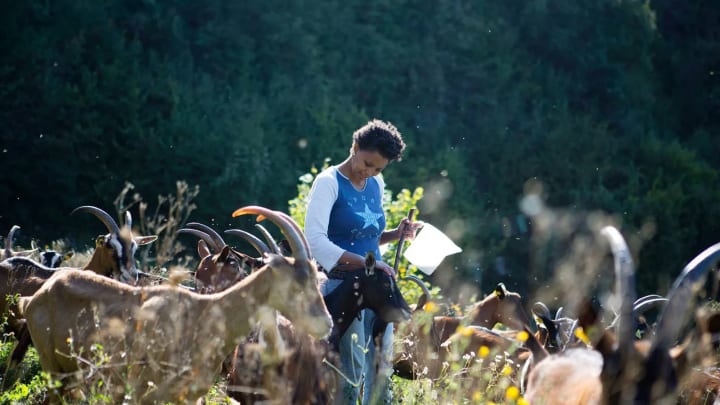
"Eighty percent of land in Ethiopia is owned by multinationals who grow export crops," she explained. "When I heard that the government wanted to take over the little land that is left for farmers, I started to organise public protests."
Faced with a possible jail sentence, Gudeta decided to flee. In the early 2000s, she had studied at the University of Trento for three years, and a network of local friends were able to help her settle back in Italy.
It was during her studies when she first heard of the endangered Mòcheno goat: a doe-eyed creature sporting a black-and-white mantle and sabre-shaped horns that was once a common sight in Bersntol, the local name for the valley.
"Goats were used by families for wool, butter and cheese," said Leo Toller, curator at the Institute of Mòcheni Culture in the nearby town of Palù, which, along with Fierozzo, Sant’Orsola and Frassilongo is one of the four towns still inhabited by the Mòcheni people.
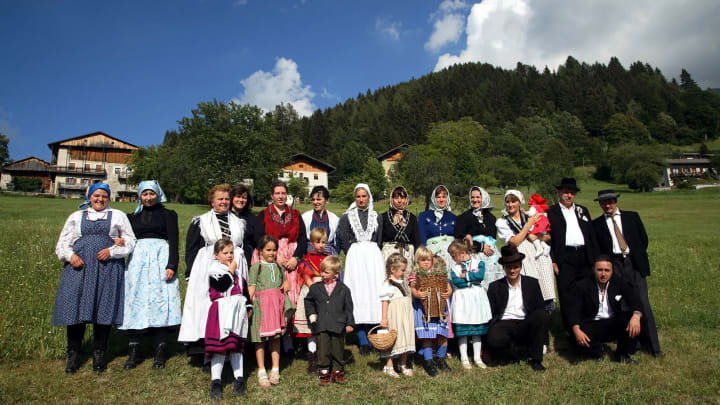
According to Toller, Mòcheni goats were traditionally an integral part of local life, and their grazing patterns shaped the seasonal movements of the Mòcheni people. Shepherds took the goats up to mountain pastures in summer and down to the valley during winter. But the combined impact of industrial farming and emigration after World War Two led to the abandonment of this practice. Plus, many commercial shepherds were not interested in raising Mòcheni goats because they produce less milk than other breeds.
By 2005, only seven Mòcheni goats remained and the breed was 'about to be extinct'
By 2005, a census reported that only seven Mòcheni goats remained and the breed was "about to be extinct". Four years later, a group of local shepherds teamed up to create the Association of Mòcheni Goat Breeders, a non-profit organisation that has since helped to repopulate the animals, which can reproduce up to two times a year.
"When I heard that a friend of mine was involved with repopulation efforts, I decided to take on a few goats [in 2010]," Gudeta said. Having grown up surrounded by nomadic goat shepherds, she felt she could help revive the Mòcheni population and give back to her new home. Thanks to a local law that allows citizens to take on abandoned land for herding or farming, she was able to secure an 11-hectare pasture for her new collection of 15 goats.
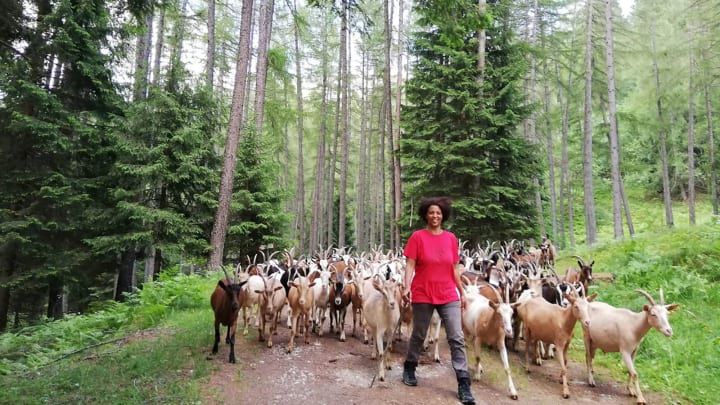
At first "Agi", as locals called Gudeta, would wake up at 06:00 to take the goats out for four hours in the fields near Val di Gresta, 56km south-west of Frassilongo, before her shift as a barista in a cafe in the nearby town of Mori. After saving some money, she decided to relocate her flock to the Mocheni valley, in an area above Frassilongo.
According to Gudeta, most shepherds in the area had become used to raising "high-performing" goats that were kept indoors and fed artificial fodder so they would produce more milk. Luckily, the goat herding techniques she learned from her grandmother in Ethiopia proved effective in rearing this endangered Italian breed.
"Nomadic shepherds never keep goats indoors and only feed them herbs found in fields," she explained. "I avoided using man-made feed and instead took them grazing in their own indigenous environment."
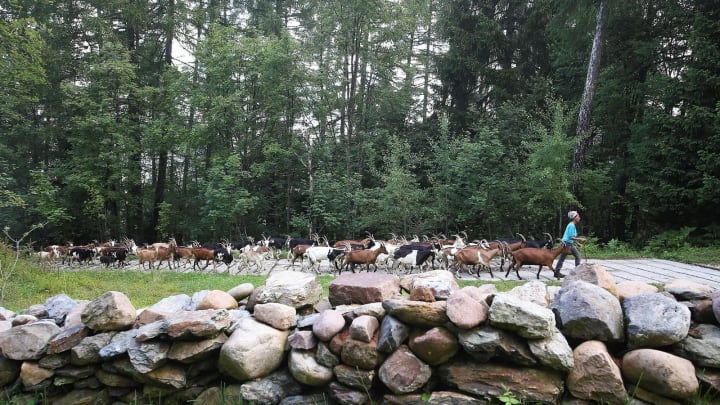
Thanks to nutritious wild herbs, plenty of groundwater and the right mix of herding and rest, Gudeta’s 15 goats started to thrive. By 2012, Gudeta decided to put the mild-flavoured, soft caciotta cheese; yoghurt and other products she was making for her own consumption on the market. She studied local business laws and applied for a permit to start a dairy farm, but her ambition clashed with traditional local culture.
In an ethnically homogenous valley where labour has historically been segregated by gender, the idea of an Ethiopian woman making cheese raised a few eyebrows.
They didn’t think a woman could be a shepherd
"People looked at me like I was crazy," Gudeta said. "They didn’t think a woman could be a shepherd."
After navigating the region’s bureaucratic laws, Gudeta – who not only spoke fluent Italian but also Trentino’s dialect – was able to obtain the required permits to run her farm. With a budget of €200 and the help of an intern, she started making cheese in the basement of Frassilongo’s former kindergarten, which had been vacant for years due to a lack of pupils.
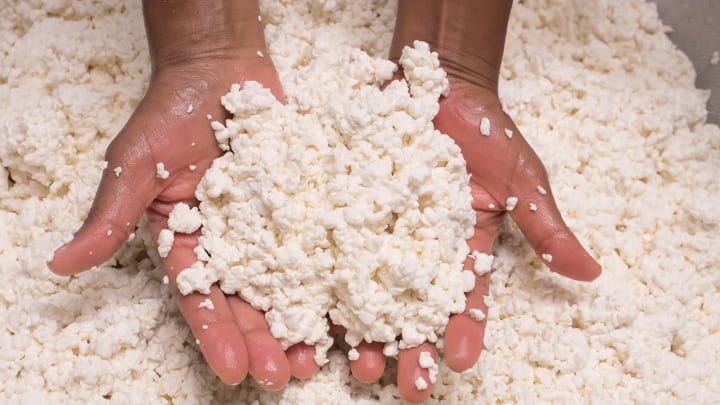
She named her venture La Capra Felice because, as she stated, "My goats are happy." Indeed, compared with most large-scale farms, Gudeta’s goats enjoy wide-open space, natural food and highly personalised treatment. Gudeta called each goat by name based on their personality: The Anarchist never follows the rest of the herd, while The Rascal often hides.
Since starting her farm, Gudeta took in and trained a migrant from Mali and a refugee from The Gambia to work as shepherds in order to give a chance to two people who, like her, had to flee their countries for economic or political reasons.
Gudeta's cheeses were awarded the Dairy Resistance prize by Slow Food
Gudeta’s cheese eventually earned her the respect of even the most sceptical local. According to Toller, Mòcheni goat milk has always been a staple of local gastronomy. Many centuries-old dishes, including kropfens (dumplings filled with cabbage and goats’ cheese) are made using Mòcheni milk.
By following the same traditional cheesemaking techniques used by locals and her family back in Ethiopia based on unpasteurised milk, rennet and salt, Gudeta was able to recreate flavours that have been part of Mòcheni gastronomy for centuries. Very often, her caciotta and goats’ milk gorgonzola incorporate distinctive seasonal flavours like thyme or ramson based on the herbs eaten by goats at different times of year.
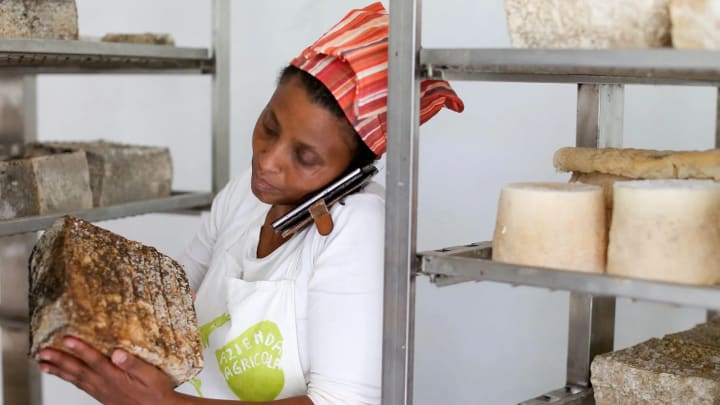
In 2015, her cheeses were awarded the Dairy Resistance prize, an award granted by Slow Food to cheesemakers practicing traditional techniques. Many elderly locals looked up to Gudeta, and Bruno Groff, who served as mayor of Frassilongo until 2020, said Gudeta’s farm was a “breath of fresh air and the proof that everything is possible”.
Yet, not everyone has welcomed Gudeta’s success. In 2018, a man repeatedly harassed her and her two African shepherds.
"I was walking down the road that leads to our pasture and heard a man shouting at us to go back home," Gudeta said. At first, she and the other shepherds thought it was an isolated episode. But verbal attacks eventually escalated to physical aggression. Two of Gudeta’s goats were killed and her car was damaged. When Gudeta recorded her aggressor on video, he was finally prosecuted.
As news of Gudeta’s aggression spread, many locals took to social media and local radio stations to express their solidarity with "Agi". Groff also condemned the episode and publicly defended Guideta.
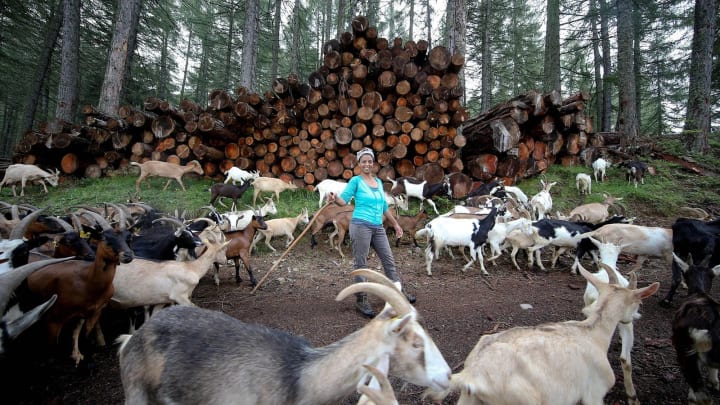
"I have been in Trentino on and off for 20 years and never perceived hostility like [that]," she said.
"The Mòcheno community has always welcomed Agitu for her inspiring story and her hard work," said Claudia Marchesoni, a curator at the Institute of Mòcheno Culture.
Gudeta became a fixture in the community. She sold her cheese and goat milk body lotions from her shop in Frassilongo and at farmers’ markets around Trentino. She regularly hosted students eager to learn organic practices in exchange for room and board and organised workshops on traditional agriculture for local children. Her next plan was to create a farmstay.
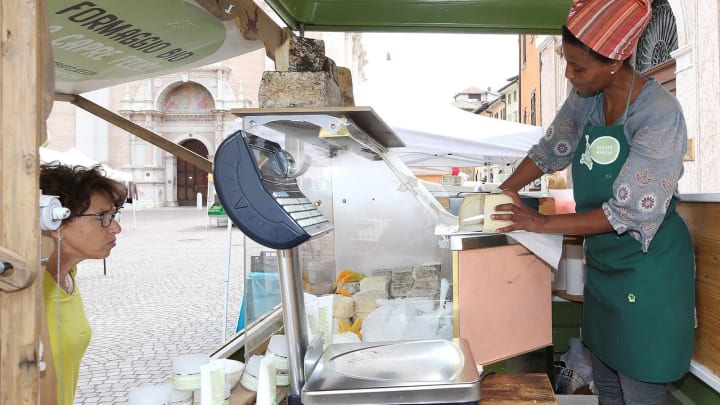
Guests would live in solar-powered huts and participate in cheesemaking workshops, foraging lessons and cooking classes. Gudeta hoped that learning about how food is made will spur people to adopt more sustainable practices.
But for now, Gudeta’s ultimate dream has been paused.
Agi's legacy
Tragically, after this story was reported, Gudeta was killed by one of her employees, who confessed to murdering her for economic reasons.
News of Gudeta’s death left millions of people in shock. For days, photos of the Ethiopian woman surrounded by her loving goats were on the front page of every major Italian newspaper. For a valley used to almost no crime, Gudeta’s murder came as an unfathomable trauma.
"We heard about it while we were having a city council meeting, and no-one could carry on speaking," said Trento’s mayor Franco Ianeselli. Two days after her passing, thousands of people gathered in Trento’s main square for a torchlight march.
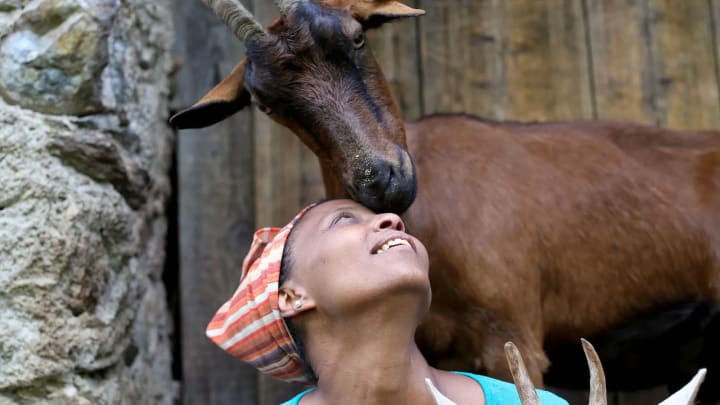
"It’s hard to imagine such participation for the death of a businesswoman," one man told national TV broadcaster RAI. "But she was not just selling cheese, she was sharing love for life."
She was not just selling cheese, she was sharing love for life
Now, the local community is determined to not let Gudeta's death overshadow her legacy.
In January, millions of people from around the world flooded the internet with poems, drawings and videos inspired by her life. And within one week of her passing, a fundraising initiative was started to continue Agitu's dream of raising local goats and opening a farmstay. To date, it has raised more than €110,000.
Some of Gudeta’s closest friends – including Manuela Gualdi, a consultant for non-profit businesses who worked with her on grant applications, are working with a public notary to find a legal way to use the funds to keep Gudeta's business alive and to carry on her dream of opening a farmstay.

"We are discussing ways to keep her projects going as well as ways to honour her legacy,” Ianeselli said.
Gualdi hopes the money will be spent on projects that evoke Gudeta’s sense of hospitality like the farm stay. "Sure, she loved her goats, her dairy-farm and going to markets,” Gualdi said. "But what she loved the most was having people around and sharing her love for animals and for nature."
By choosing to live here, she showed us the potential of this place
Possible initiatives to honour Gudeta’s legacy include a fellowship in her name dedicated to young female shepherds and the creation of an international female shepherds day.
Stefano Molter, who heads the Association for the Preservation of the Mòcheni Goat, says that Gudeta's determination is what will stay with him the most. "We used to banter about her stubbornness," he said. "Yet it's precisely her determination that left a mark in our community." He explains that Gudeta's example has changed the way most people think of the area. "In a valley where most young people leave to find jobs in urban areas, it took a foreign woman to show us what can actually be done right here.”
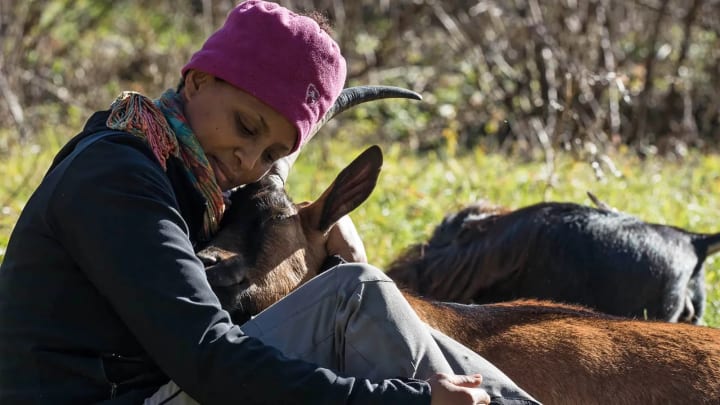
"Many reporters framed Gudeta story as one of successful integration," Ianeselli added, "but I think it's the other way around: by choosing to live here, she showed us the potential of this place."
About the Creator
Mejra
Later, respectively, wander and suffer sorrow.






Comments
There are no comments for this story
Be the first to respond and start the conversation.